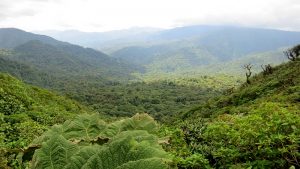Costa Rica’s success story in the field of sustainable forestry has been strengthened by a forest assessment strategy which involved paying for their restoration by investing in environmental services.In the 1940s, 75% of the country was wrapped in rainforest and mangroves. But in the following 40 years, half of all the trees were cut down. An environmental drama, to the point that in 1996 strong deforestation bans were established, with the arrival of PES programs (funds for environmental services) the following year.
By applying simple economy rules, the forest is considered a public service provider. As such, any company that has benefited from resources or processes provided by the forest must “pay the forest” on the basis of what it receives. In the same way, anyone who allows the forest to thrive receives economic help.
Example: does a group of old trees grow on the land of a farmer who could cut them down and plant cocoa, coffee, bananas or other tropical agricultural products? The farmer receives money from a fund that businesses and citizens pay to be able to afford to keep the forest intact.
Now 60% of the country is once again wooded and every year Costa Rica raises around $ 33 million which it uses to make sure that forests affecting privately owned land are treated. Over the past 20 years, $ 500 million has been paid to landowners and farmers. Deforestation was reversed by managing 1 million hectares of rainforest. Above all, by encouraging the planting of 7 million new trees.
“People in Costa Rica receive a lot of money thanks to tourism and this changes the incentives for land use,” Juan Robalino, environmental economics expert at the University of Costa Rica told CNN.
Almost three million tourists come to see the country’s national parks and other protected areas each year. Green areas which today cover a quarter of the nation and are home to half a million documented species of plants and insects. Among them iconic animals like the sloth, or like the spectacular green parrots.
This year, less funds are expected due to reduced tourism, but deforestation will not return. Employing 200,000 people, the tourism sector generated $ 4 billion in revenue last year, including those from luxury beach resorts and small farm areas. Many companies of this type have taken advantage of the opportunity for funds for environmental services to build farms that respect nature. Places open to the public that host native trees, benefit from wild agricultural products and offer refuge to animals.
Costa Rica’s Environmental Service Funds system has been adopted by other countries around the world. One of these, Rwanda, signed a protocol in 2019 with Costa Rica to stop deforestation and restore its natural forest ecosystems.
“We have learned that the pocket is the fastest way to get to the heart” – Carlos Manuel Rodríguez, Costa Rican Minister of Environment and Energy.
Rodríguez has summarized a formidable intuition: to attribute an economic countervalue to the natural world is not an in itself incorrect thing. It is the use that is made of this evaluation that makes the difference.
And in this case it has become the best incentive for people to work to preserve the environment and destroy deforestation, not the forest.






